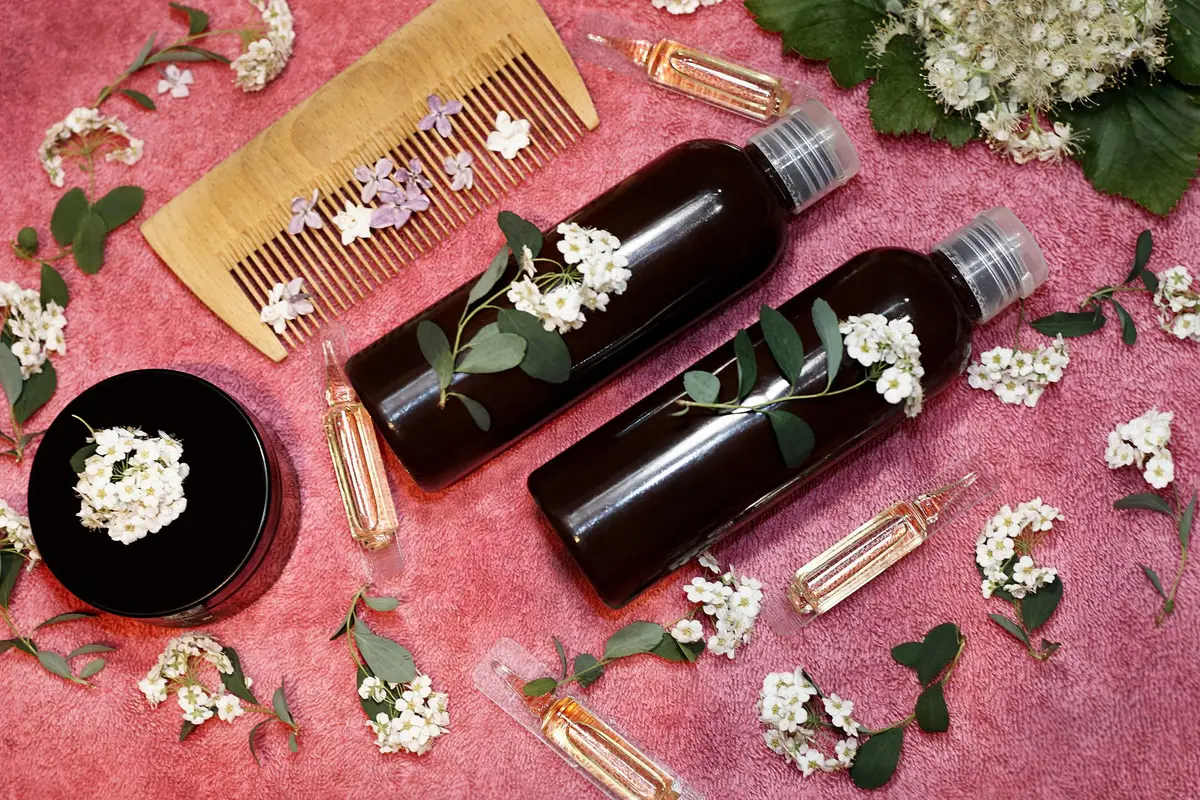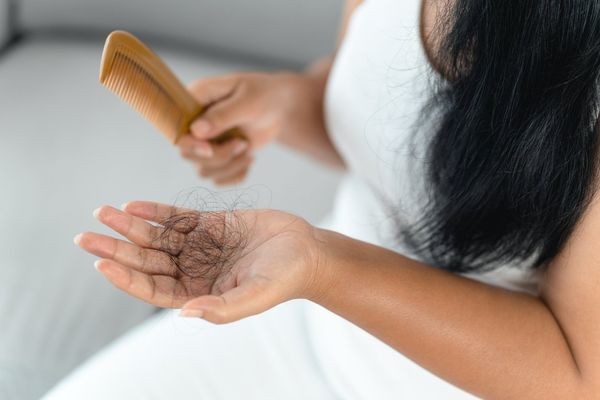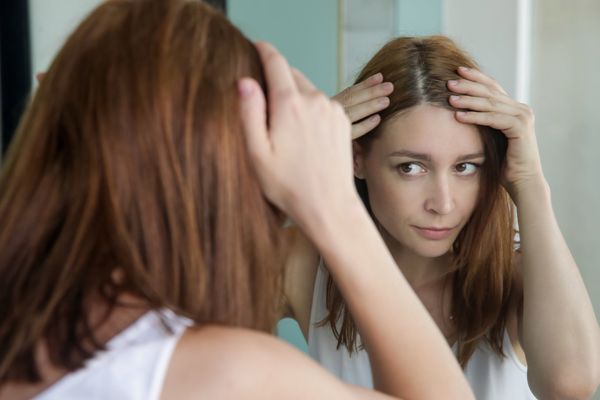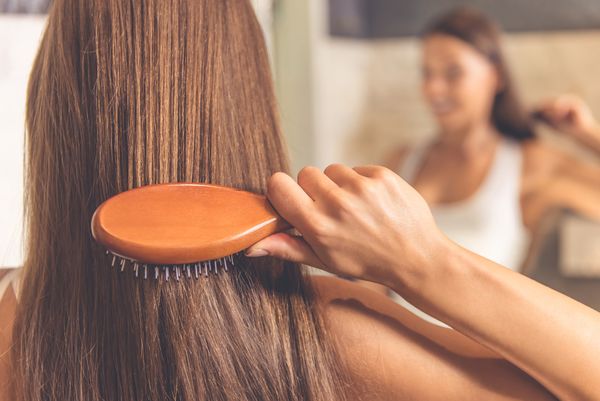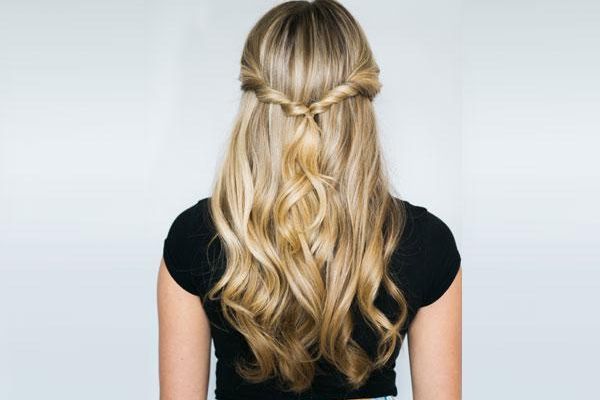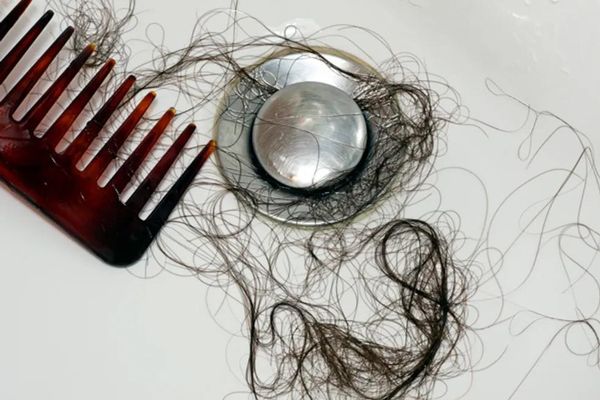Straight. Curly. Wavy. Textured. Dyed. Natural. Hair comes in all shapes and colors, but one thing that's the same — we all want our hair to look its best. Over the years, hair fads have come and gone — cracking an egg on your head, washing your hair with apple cider vinegar, and even using pee on your scalp. So we went to the experts to sort out fact from fiction.
We spoke with Bryttny White from the River Valley Club Salon in Lebanon, New Hampshire, and Shakera Kemp of Salon Elysium in Syracuse, New York, to bring you the top 10 hair tips and to shed light on the truth about some of the wacky hair tricks you've been hearing about.
1. Wash your hair
There's a myth that says that you shouldn't wash your hair every day if you want it to be healthy — this isn't always true! It's different for each person. Younger people, like teenagers, probably do need to wash their hair every day, but as we age, that need becomes less and less as our scalp doesn't produce as much oil. For those with curlier hair, generally washing once a week is good.
2. Use products that are made for hair
Take all of your eggs, mayonnaise, coconut oil (and yes, pee!), mix it all up — and throw it in the trash. Use products that are specifically made for hair. These have been designed for hair and include ingredients that will keep it healthy and happy without the need for trendy food items.
3. Manage stress
Take care of stress. If you're stressed out all the time, it can impact the health of your hair. Physically traumatic events such as having a child or stressful life changes like losing a job or living through a pandemic can have a negative effect on a person's hair. But don't worry — once stress levels are managed, your hair usually goes back to the way it was.
4. Take your vitamins
Healthy hair starts from within. People who eat healthily, exercise regularly, take vitamins, and take care of their mental health generally have healthier hair than those who don't. Vitamins such as A, B and D are essential to hair growth and will keep you and your hair in good shape. A lot of stores sell vitamin mixes specifically suited for hair health, but make sure to always read the label and buy from a reputable source.
5. Take care of your scalp
Get rid of dead skin and product build-up on your scalp. When you're in the shower, try giving yourself a scalp massage. You don't want any build-up that could limit new hair growth. Healthy hair stems from a healthy scalp.
6. Maintain your ends
The key to having long and healthy hair is keeping split ends in check. Visit your salon every three to four months for a trim. Once hair starts to split, it will continue to split all the way up the shaft of the hair. Getting rid of these split ends before they do too much damage is key. Those regular trims will aid in length retention as well.
7. Take a look at your hair ties
A lot of the time people will get breakage around the face or middle to top of their hair. This is usually caused by a hair tie. Make sure you don't wear your hair ties super tight, and research the best hair ties for your hair type. If you notice any pulling and breakage in the ties themselves, throw them away.
8. Condition your hair
Don't use a two-in-one product — there's actually no such thing. Products either cleanse your hair or condition your hair. Two-in-one products do neither. Use separate shampoos and conditioners specifically suited to your hair type to ensure your hair and scalp are properly cleaned and moisturized. Conditioners will not cause your hair to be greasy. In fact, not using one will make your hair greasier because your scalp can go into oil production overdrive trying to overcompensate for the dryness. Give it a chance to do its job.
9. Use thermal care
Most hair damage is caused by heat. Get a thermal protector and use it any time you're using a blow dryer or flat iron on your hair. It's not necessary under a hooded dryer. They cut down the heat and the damage done to your hair by half. Try it out yourself by applying a heat protector to your skin and then hit it with a hair dryer. Compare this to an area that hasn't been protected with heat protectant. You'll definitely notice a difference.
10. Use a blow dryer adaptor
Whenever you use a blow dryer, use the attachments. The extra few inches that the attachment puts between your blow dryer and your head will save your hair. They significantly reduce frizz and heat damage and can be a lifesaver for your hair. For curly hair, be sure to use the diffuser.
- 10 Beauty Products That Make Life Easier ›
- Hair-Brushing Mistakes - HealthyWomen ›
- How to Maintain Beautiful Hair as You Age (Courtesy of the Late ... ›
- Face Washing Mistakes You Never Knew You Were Making - HealthyWomen ›
- 7 Foods for Healthy Hair - HealthyWomen ›

